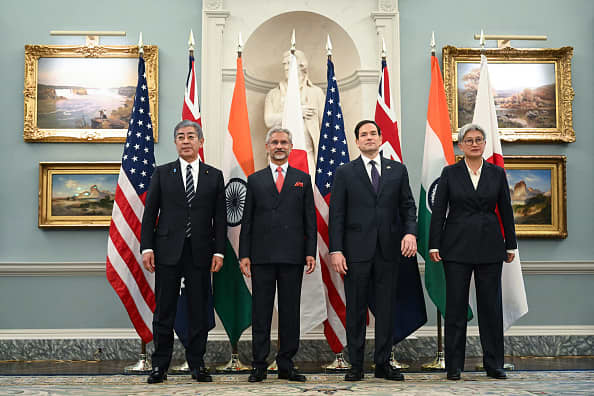Tony Hetherington is Financial Mail on Sunday's ace investigator, fighting readers corners, revealing the truth that lies behind closed doors and winning victories for those who have been left out-of-pocket. Find out how to contact him below.
WE'RE WATCHING YOU
Gold has always been seen as a safe haven in times of economic uncertainty, political turmoil and international conflict. But how much reliance can anyone place on an adviser who says that putting your savings into gold is something you should do right now, because of the supposedly imminent threat of World War III, and who has been barred from the entire financial services industry?
The Advertising Standards Authority (ASA) has just banned an advert by Solomon Global Limited, which promotes investment in the metal. The company said investors could 'earn 10 to 12 per cent per annum', adding that 'gold has averaged 11.5 per cent per annum for the last 20 years.' The ASA ruled that this claim was misleading, as it failed to illustrate the risks and did not make clear that past performance was no guarantee of future value. The watchdog ordered that the ad should not appear again.
But this close look at Solomon Global has turned the spotlight on its head consultant (or top salesman). He is Clive Lindsay, though this is just one of his wide range of names, which include Clive Harris, John Harris and his original title, Clive Mongelard.
A decade ago, I described him in The Mail on Sunday as 'a living, breathing example of what is wrong with investor protection in Britain'. I first warned against him in 2014. Then, he had set up TM Harris Associates, selling investments in rare earth metals. In fact, these metals are not rare. The name simply means they are not found in large quantities in one place.
They are commonplace in batteries and similar products, but there is no two-way market which would have allowed Mongelard's victims to turn their investment back into cash.

Mongelard falsely claimed to be one of Britain's most respected stockbrokers. True, he was on the public register of the Financial Conduct Authority, confirming that he had worked for several broking firms. But each one had collapsed in the face of complaints about the mis-selling of high-risk shares to low-risk clients.
Using the name Harris, Mongelard had also been a salesman for Green Planet Investment, which scammed investors out of more than £14 million that was supposed to be used to buy land and develop a resort in Brazil.
The dodgy dealer went on to sell shares in Our Price Records with false claims and no authorisation from the City regulator. This was a step too far for the Financial Conduct Authority (FCA). In 2020, it won a High Court case against Mongelard and three others after finding that the salesmen pocketed half the money investors handed over. They were ordered to repay victims, with Mongelard himself told to hand back £1.2 million. He failed to pay a penny and was declared bankrupt in 2021.
In July, the FCA finally banned Mongelard from any finance job that needs its authorisation, ruling that he was not 'a fit and proper person' and showed a 'serious lack of integrity'.
Mongelard now sells gold, which is outside the FCA's jurisdiction. A significant part of his sales pitch is aimed at ethnic minorities. In a podcast he says: 'It's a great way for us – particularly within the black community because we don't pass a lot of our wealth down, it has been a majority of debt – to create a legacy.' He explained: 'It's as simple as this... We get your money out of the banks, which are possibly going to collapse soon, you buy gold from me, I send the gold to them, they put it under their mattress, they wait for it to go up and then they sell it.'
It seems even a global disaster would have an upside. Mongelard has just reposted an article on X (formerly Twitter) announcing: 'The rising threat of World War III could see gold hit $2,800 (£2,200) by Christmas.' For him, apparently, every mushroom cloud has a golden lining.
Describing himself as the 'Gold Guru', Mongelard says: 'Ever since I discovered the power of precious metals, I knew that helping others achieve financial security was my calling.'
I am sure this statement will comfort all those who lost their savings after trusting his earlier sales pitches.
Both Clive Mongelard and Solomon Global were invited to comment. Neither did so.
£13,000 bond paid to wrong person
M.R. writes: My wife and I invested in a bond with Clerical Medical, and recently decided to cash it in.
For a number of years, annual statements have shown my wife's name incorrectly as Mrs Bray, whereas other correspondence has shown both our names correctly. When the bond was cashed in, Clerical Medical wrote saying that £13,485 had been paid into Mrs Bray's bank account.
I wrote to them about this, but received no response.

Tony Hetherington replies: This has been a bizarre investigation. You and your wife have no connection to Mrs Bray, and no idea who she might be. However, Clerical Medical's letter about the payment of the bond proceeds showed Mrs Bray's address.
I made enquiries, including into where she had lived earlier, and found that at her previous address she was registered under your wife's name.
I can think of no obvious reason for this, or for how she ended up being regarded by Clerical Medical as your wife, even though you live hundreds of miles apart. It appears the company's client records were mixed up through human error.
A spokesman told me: 'We are sorry for the poor service we provided to Mr and Mrs R.
We have paid the full bond value into their account, together with a payment for
the inconvenience caused and any lost interest as a result of our error.'
You now have the full £13,485, plus £72 interest and an extra £500 as an apology.
If you believe you are the victim of financial wrongdoing, write to Tony Hetherington at Financial Mail, 9 Derry Street, London W8 5HY or email [email protected]. Because of the high volume of enquiries, personal replies cannot be given. Please send only copies of original documents, which we regret cannot be returned.












